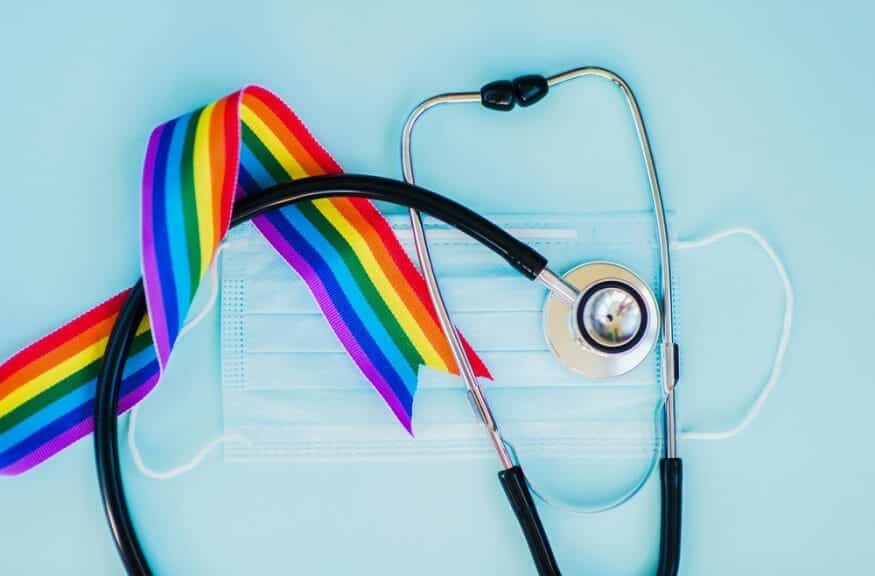The American Heart Association (AHA) just released a mind-boggling study that sheds light on the connection between heart disease and sexual orientation. Brace yourselves, folks, because it turns out that women who identify as lesbian or bisexual might be at a greater risk for heart disease. Yeah, you heard that right!
But hold on, there’s a twist. It seems that gay and bisexual men, unlike their straight counterparts, usually have a lower risk of heart disease. However, and this is a big “however,” this only applies if these gay and bi guys don’t live in rural areas. Life’s full of surprises, isn’t it?
This groundbreaking study, published in the Journal of the American Heart Association, dives deep into the intricate relationship between sexuality and the risk factors for cardiovascular diseases. We’re talking about serious stuff here: heart attacks, stroke, hardened arteries, heart failure, and arrhythmias.
Now, why the differences, you may ask? Well, according to earlier research, it seems that gays and lesbians might deal with more mental health challenges and have a knack for putting off seeking healthcare compared to their straight counterparts. That’s right, my friends, living conditions, like poverty, lousy work environments, mental health hurdles, discrimination, and even terrible past experiences in the healthcare system, could play a part in this whole shebang. Complicated, right?
So, how did these researchers come up with all this juicy info? They took a peek at the health records of over 169,400 adults across France. That’s no small number! And they used the American Heart Association’s “Life’s Essential 8” criteria, which includes things like diet, activity levels, sleep patterns, blood pressure, and cholesterol. They really left no stone unturned!
The study, known as CONSTANCES (sounds fancy, doesn’t it?), started gathering participants back in 2012. These brave souls went through clinical examinations and lab tests at the beginning of the study and then every four years until 2020. Talk about dedication!
Now, let’s dig into the nitty-gritty. It turns out that overall, women had better cardiovascular health than men, regardless of their sexual orientation. But here’s where it gets intriguing: when compared to heterosexual women, those who identified as lesbian or bisexual had lower overall cardiovascular health. Quite a head-scratcher, I must say.
But wait, there’s more! Gay and bisexual men had significantly better cardiovascular health than their heterosexual counterparts if they lived in urban areas. It seems like city living might be doing some good for their tickers. However, if these gay fellas resided in rural locales, they might face more stressors, like discrimination or sleep problems, which could impact their cardiovascular health. Life’s not fair, is it?
And just to back it all up, these results align with other studies. In the National Health and Nutrition Examination Survey (NHANES), it was found that bisexual women had worse cardiovascular health scores compared to heterosexual women. Smoking and higher body mass index (BMI) were the usual culprits. This info was published in February 2023, in case you’re curious.
Oh, and let’s not forget the AHA’s 2020 findings. They discovered a whole array of health stressors among sexual minorities, including discrimination, violence, family rejection, and, especially among racial or ethnic minorities, higher levels of poverty, shaky housing situations, and limited access to healthcare. It’s a tough world out there for sexual minorities, my friends.
Now, before you get too carried away, it’s important to note that this study has a few limitations. The participants self-identified as gay, bisexual, or heterosexual, and they were all residents of France, a country with pretty good healthcare and some decent wealth. So, while this data might not fit every country like a glove, it’s still an essential step in better understanding a population that hasn’t received as much attention in clinical and epidemiological studies. We’ve got to give credit where credit is due!
Connie W. Tsao, M.D., an assistant professor of medicine at Harvard Medical School, and attending staff cardiologist at Beth Israel Deaconess Medical Center in Boston, emphasized the importance of recognizing and understanding the unique experiences of all individuals and populations, including sexual minorities, to tackle discrimination and disparities that impact health. Preach, Dr. Tsao!
So there you have it, folks. This study is shaking up our understanding of heart disease and sexual orientation. Who knew matters of the heart could get so complicated? Stay tuned for more mind-blowing discoveries on the journey to a healthier world for everyone.














